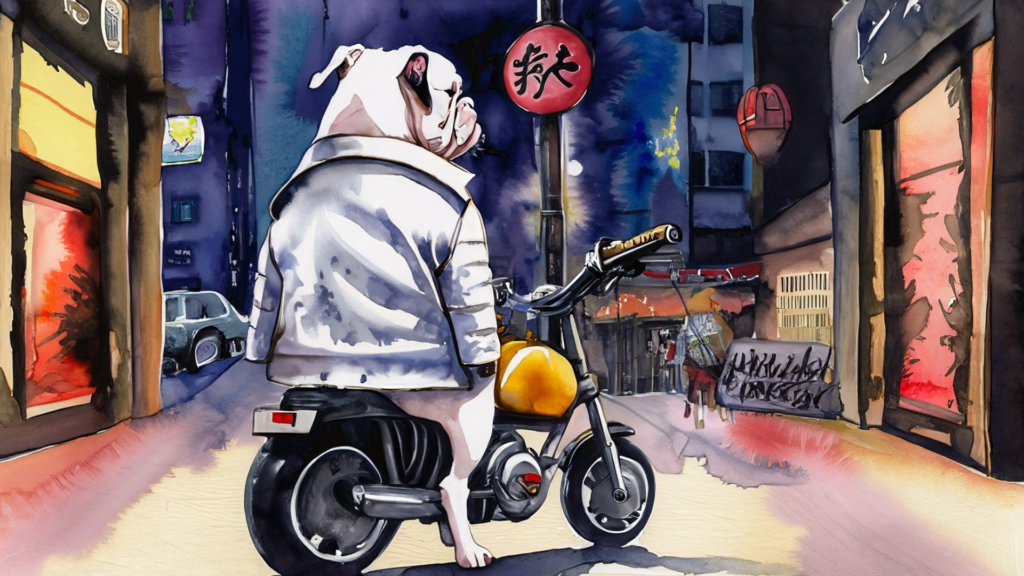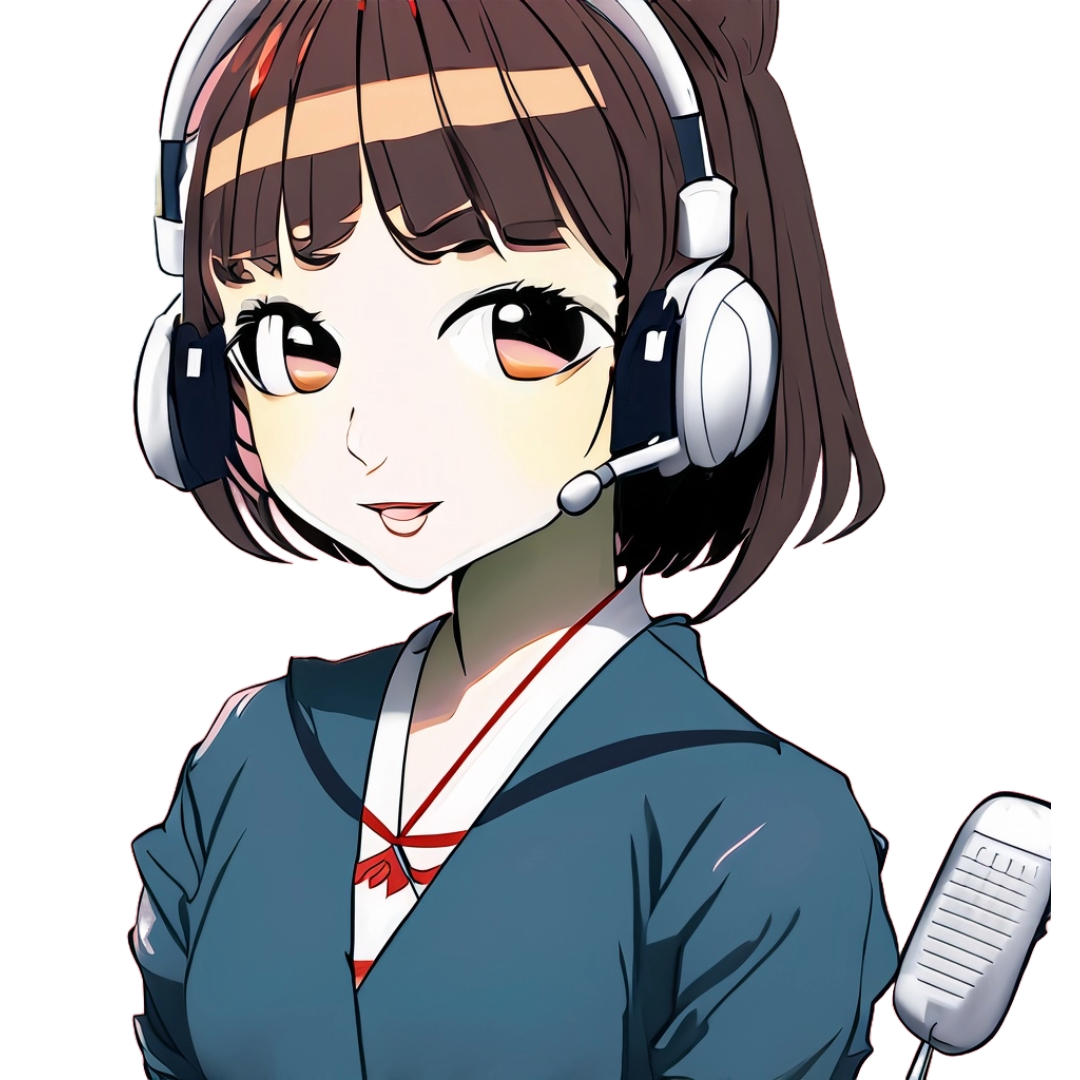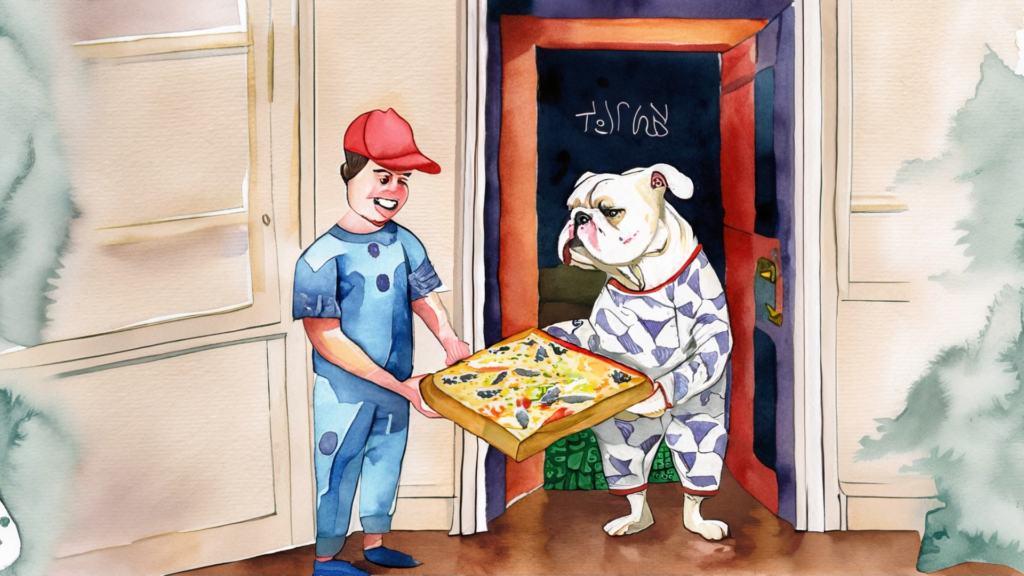レッスン6 ピザの はいたついんがきました


しごとのあと、ブルさんはバイクでレストランへ行きました。
shigoto no ato, buru-san wa baiku de resutoran e ikimashita
After work, Mr. Bull went to a restaurant on his motorcycle.

でも、レストランはしまっていました。
demo, resutoran wa shimatte imashita
However, the restaurant was closed.

しかたがないので、ブルさんはピザのはいたつをたのみました。
shikata ga nainode, buru-san wa, piza no haitatsu o tanomimashita
Since there was no other choice, he ordered pizza delivery.

15分ご、ピサの はいたついんが、いえにきました。
15 fun go, piza no haitatsuninga, ie ni kimashita
After 15 minutes, the pizza delivery person arrived at his house.

ピザはおいしかったです。
piza wa oishikattadesu
The pizza was delicious.

でもブルさんはひとりでさびしいです。
demo buru-san wa hitori de sabishīdesu
But Mr. Bull felt lonely being by himself.

今日は7月3日、ブルさんのたんじょうびです。
kyō wa shichi gatsu mikka, buru-san no tanjōbidesu
It’s July 3rd today, it’s his birthday.

| しごと shigoto | work |
| あと ato | after |
| バイク baiku | motorcycle |
| しまっています shimatteimasu | be closed |
| しかたがない shikata ga nai | it can’t be helped, There is no other choice. |
| ピザ piza | pizza |
| たのみます tanomimasu | order |
| はいたつ haitatsu | delivering |
| 〜ご go | after |
| はいたついん haitatsuin | delivery person |
| いえ ie | house |
| おいしい oishī | delicious |
| ひとり hitori | alone, one person |
| さびしい sabishī | lonely |
| はし hashi | chopsticks |
In Japanese, “で(de)” functions as a particle indicating the means or method.

はしでごはんを食べます。
hashi de gohan wo tabemasu
I eat rice with chopsticks.

ブルさんはバイクでレストランへ行きました。
buru-san wa baiku de resutoran e ikimashita
Mr. Bull went to the restaurant on his motorcycle.
In these sentences, “はし hashi (chopsticks)” and “バイク baiku (motorcycle)” are used as means or methods.
These two Japanese verbs, “いきます” (ikimasu – to go) and “きます” (kimasu – to come), can change their meaning depending on the perspective of the subject involved in the action. The meaning of “go” or “come” is relative to the speaker or the person whose viewpoint is being considered.

ブルさんはバイクでレストランへ行きました。
buru-san wa baiku de resutoran e ikimashita
Mr. Bull went to the restaurant on his motorcycle.

ピザのはいたつにんがいえにきました。
piza no haitatsuninga, ie ni kimashita
The pizza delivery person arrived at his house.
| ブルさん | →行きます | レストラン |
| ピザのはいたつにん | →きます | ブルさん |
| ピザのはいたつにん | →行きます | ブルさん |

たけしのいえに行きます。
takeshi-kun no ie ni ikimasu
I’ll go to Takeshi’s house.

はるかはぼく*のいえにきます。
haruka wa boku no ie ni kimasu
Haruka is coming to my house.
In Lesson 1, we learned that the particle “に” is used in conjunction with time-related words.

ブルさんは午前6時におきます。(レッスン1)
buru-san wa gozen rokuji ni okimasu
Mr. Bull gets up at 6 a.m.
However, “に” is also used when indicating the destination or arrival point. In this case, a noun representing the place is placed before “に.”

ピザのはいたつにんがいえにきました。
piza no haitatsuninga, ie ni kimashita
The pizza delivery person arrived at his house.
Additionally, the particle “へ” can be used as a substitute for “に” in this context. While “へ” is usually pronounced as “he”, when used as a particle, it is pronounced as “e”. It is important to note that it is not written as “え” in this case.

ブルさんはバイクでレストランへ行きました。
buru-san wa baiku de resutoran e ikimashita
Mr. Bull went to the restaurant on his motorcycle.
レストランへ行きました。✅
レストランえ行きました。❌
Please rearrange the words
Q1:Today is January 26, 2024.
Q2:I’m going to New York by plane.
1. 今日は2024年1月26日です。
2. ひこうきでニューヨークに行きます。
| ひこうき hikōki | plane |
| ニューヨーク nyūyōku | New York |

